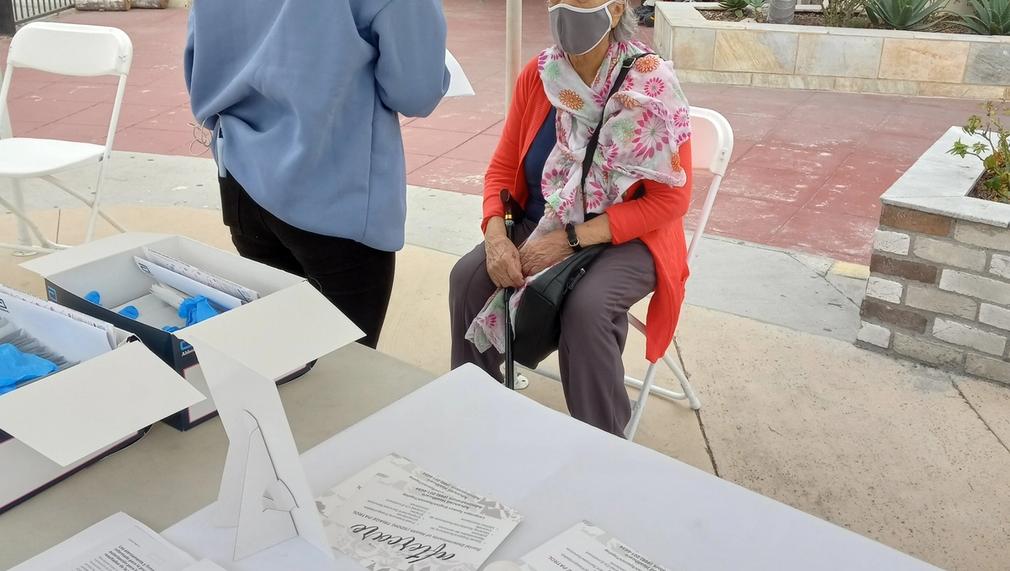Expanding Our Care Coordinators Program
We address the ever-changing dynamics confronting our healthcare system today. We developed and implemented a patient-focused Care Coordinators Program to assist medical providers and community health centers in addressing the essential S.D.O.H. non-medical services most needed by patients. We focus on: Enrollment Assistance with Medi-Cal, CalFresh (SNAP). Covered CA. and Medicare enrollment assistance: Referrals to the CHIP program: VITA Program (Free Tax Services) Food and Housing Insecurity: Transportation services, mental health services.

What is the primary issue area that your application will impact?
Health Care Access
In which areas of Los Angeles will you be directly working?
Central LA
East LA
South LA
South Bay
County of Los Angeles
In what stage of innovation is this project, program, or initiative?
Expand existing project, program, or initiative
What is your understanding of the issue that you are seeking to address?
We developed a special expertise with our Care Coordinators Program. We have contractual agreements with Federally Qualified Health Centers, community clinics, social service agencies, churches and small businesses to address these essential enabling services that have been proven to affect and improve overall health care of predominantly low income, minority individuals. Our aim is to foster and improve health outcomes among high risk, high need individuals including the LGBTQ community, the homeless, through increasing access to our Care Coordinators Program. We focus on the most vulnerable patients, low income, uninsured and undocumented minorities who not only must struggle with financial constraints associated with no health insurance coverage but they must also face the cultural, racial and socio-economic barriers impacting them. We witnessed firsthand these barriers during the covid - 19 pandemic. We emerged more determined to reach out to those most in need of our services.
Describe the project, program, or initiative this grant will support to address the issue.
Since 2015, AHA has completed over 12,000 enrollments in the Medi-Cal and CHIP programs. We have also facilitated access to over 7,000 enrollments in various health insurance options both public and private. AHA is currently assisting 8-10 families per week. The average household size is 4.5 members. For the calendar year Dec. 2022, AHA provided direct enrollment assistance to more than 140 individual clients per month. we documented that we provided over 10,480 distinct encounters and records of service during this 12 month period. The enabling services provided include : utility and rental assistance eligibility and determination and enrollment. Short term, interim and extended housing support including Section 8, HUD approved rental opportunities. Food Insecurity -coordination with the L.A. Regional Food Bank, the Long Beach Economic Opportunity Council, local church sponsored food distribution programs offering family focused, nutritional food delivery services. Transportation services - both to and from community health centers as well as to other medical and mental social service centers located within our primary and secondary service areas. Covered California Health Insurance eligibility and enrollment services offered in conjunction with several local Covered CA. offices. referrals of potentially eligible clients to major health plans such as L.A. Care, Healthnet, Kaiser, Blue Shield of California.
Describe how Los Angeles County will be different if your work is successful.
To date, AHA remains as one of a small handful of nonprofit organizations that have stepped in to fill this state and federal mandated SDOH gap in providing patient's access to these enabling services. These services have demonstrated to provide measurable improvements in health outcomes for those individuals successfully enrolled and receiving such services. Health researchers determined that as important to direct access to high quality, primary medical care is, that failure to address the social determinants of health affecting our lives leads to fragmented medical care with higher morbidity and mortality rates. AHA's focus on assisting community health centers, clinics and other social service agencies to provide these core enabling services is resulting in more patient continuity with their medical providers, improved clinic visit rates, improved health outcomes and an overall improvement in the daily quality of life for hundreds of low income, minority residents of L.A. County.
What evidence do you have that this project, program, or initiative is or will be successful, and how will you define and measure success?
The Center for Disease Control 's published report Addressing the Social Determinants of Health, April 2022 documents the positive impact and improved health outcomes for individuals receiving S.D.O.H enabling services. AHA is measuring its impact by tracking and documenting the number of individual clients served. We have directly assisted more than 350 families who for various reasons including language barriers, were unaware that they qualified for Medi-Cal, Cal Fresh, income tax preparation, social security disability determination, enrollment with the Covered California Health Insurance Program, food distribution programs, utility and or rental assistance programs. While the number of clients served may be small in comparison with publicly funded entities such as the L.A. County Dept of Social Services, the numbers nonetheless document the huge demand and unmet needs for these enabling services found within the multiple urban communities compromising the L.A. metropolitan area.
Approximately how many people will be impacted by this project, program, or initiative?
Direct Impact: 150
Indirect Impact: 500